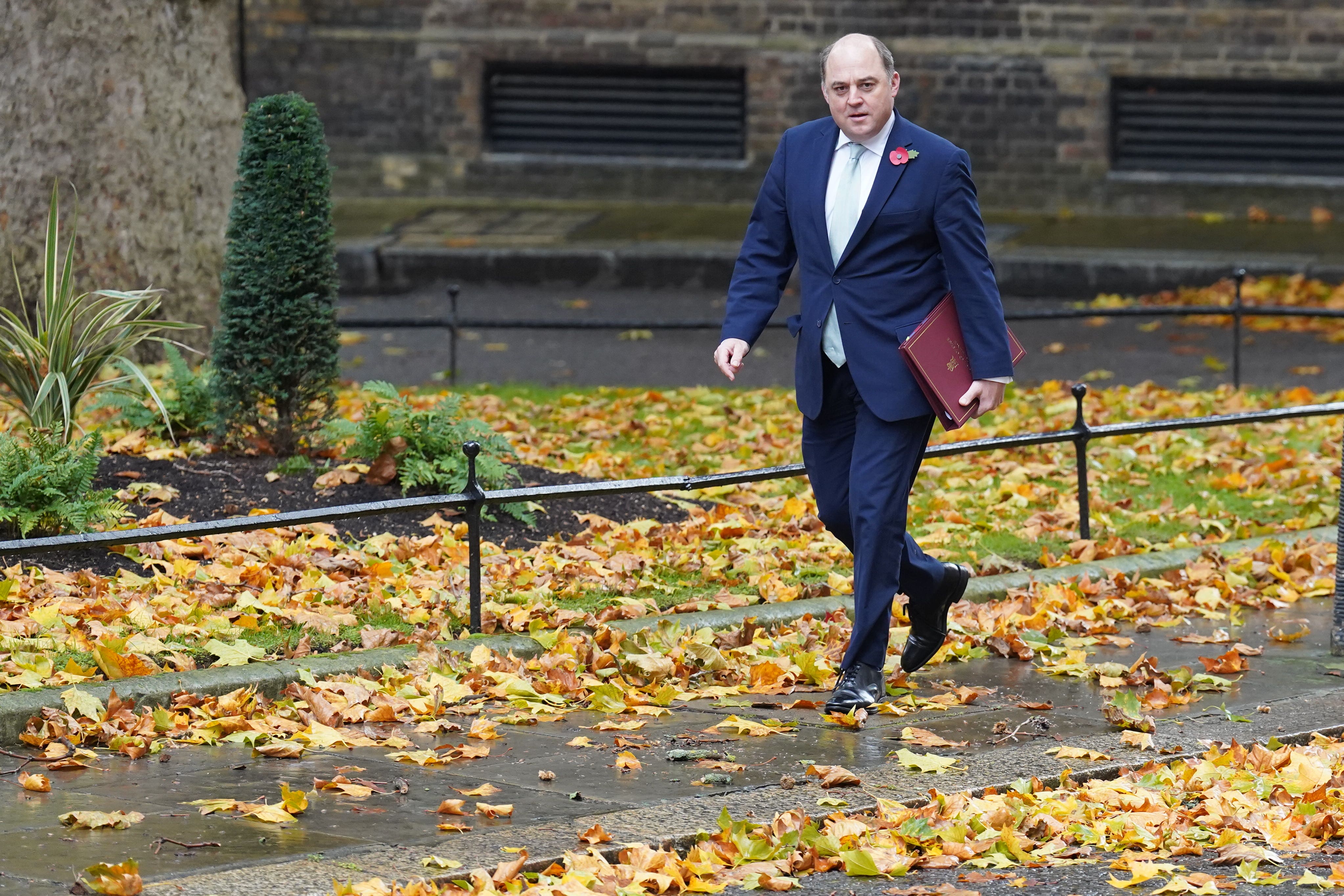Wallace: Budget will reveal Sunak’s commitment to boosting defence spending
The Cabinet minister says he would like to see defence spending go up ‘by significant amounts’ – but acknowledged he lives ‘in the real world’.

Defence Secretary Ben Wallace has said it remains to be seen “how fixed” the new Prime Minister and Chancellor are on boosting defence spending to 3% of GDP, as the new top team seeks to balance the books.
However he said he is “confident” there is a “recognition that defence is moving up the funding priority ladder”.
The Prime Minister and his Chancellor, Jeremy Hunt, are currently considering tax rises for millions of households and a squeeze on spending to address a black hole of up to £50 billion in the public finances.
Earlier on Tuesday, Rishi Sunak told Cabinet members that the NHS would be “prioritised” amid “difficult decisions” over the coming weeks.
But No 10 has declined to commit to a promise from former prime minister Liz Truss to raise defence spending to 3% of GDP by 2030, as Mr Sunak and Mr Hunt complete their review.
In his first leadership bid over the summer, Mr Sunak refused to set “arbitrary” goals on defence spending.
Mr Wallace, who survived the PM’s reshuffle to retain his role, will be on resignation watch if the Government scraps the pledge.
Appearing before the Lords International Relations and Defence Committee, the Defence Secretary said Mr Sunak and Mr Hunt’s commitment to the promised rise would be revealed at the upcoming budget.
Asked how confident he was that the Government would be able to maintain the pledge, he said: “First of all, I would say I’m confident that there’s a recognition that defence is moving up the funding priority ladder.
“How fixed this new Prime Minister and the Chancellor is going to be on 3%, we’ll find out at the budget, where obviously in the OBR you’ll have to indicate your spending profiles.
“From my point of view, what I would say is what matters for me is the next sort of three or four years I have my spending envelope that currently finishes in (2024), and that was what our previous calculations (were) based on.
“So these next two years will really be seeking insulation from foreign exchange, for example, and indeed inflation.”
He also said he will be meeting with Mr Hunt this week to discuss what the autumn budget will mean for his department.
The Cabinet minister said he would like to see defence spending go up “by significant amounts” – but acknowledged he lives “in the real world”.
“I’m confident that the argument has been made that defence needs to come back up the priority in investment, the next argument is how much by, and obviously as Defence Secretary, I would like (it to be) by significant amounts,” he said.
“But I also live in the real world and the next two years there is a spending challenge we have to meet.
“I’ve got my envelope. Inflation is the biggest enemy of me with a capital budget that ranges between £15 to 18 billion a year, roughly. That level of capital, unlike other departments, means that I am particularly vulnerable to inflation and exchange rate pressures.
“So I would like to get through that and then plan into the longer term.”
Mr Wallace also claimed a lot of his colleagues “want to play Top Trumps” with defence investment priorities.
He told the committee: “If we get a lot more money over the next 10 years, do I put more in the air force and less in the army, or do I put more in… submarines and more in surface ships?
“It’s an interesting question that never pleases many people and (it) is important that we get that in the right place.
“Unless you can afford mass properly, the question has to be would you not rather have a perfectly formed, properly defended, capable unit size rather than just a huge number of people that we can play Top Trumps with?
“A lot of my colleagues want to play Top Trumps. What’s the point of having hundreds of tanks if you can’t protect them?”
Mr Wallace successfully secured commitments to increase the defence budget under both Boris Johnson and Ms Truss.
Mr Johnson initially agreed to raise it to 2.5% of national income by the end of the decade – compared to the Nato minimum of 2% – a commitment his successor subsequently lifted to 3%.
Bookmark popover
Removed from bookmarks